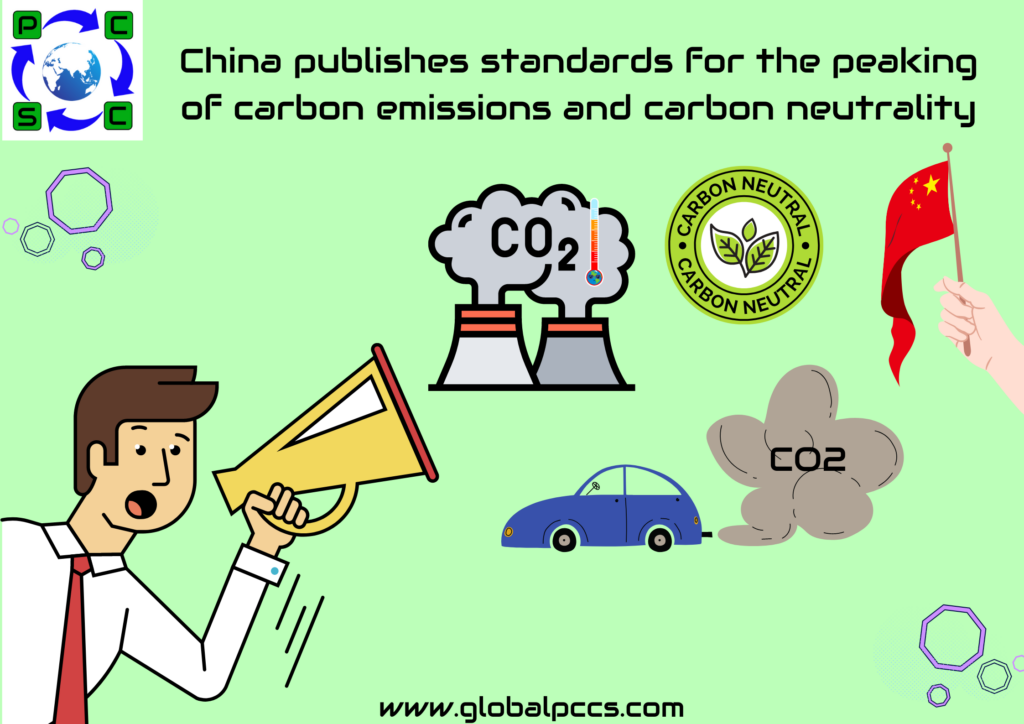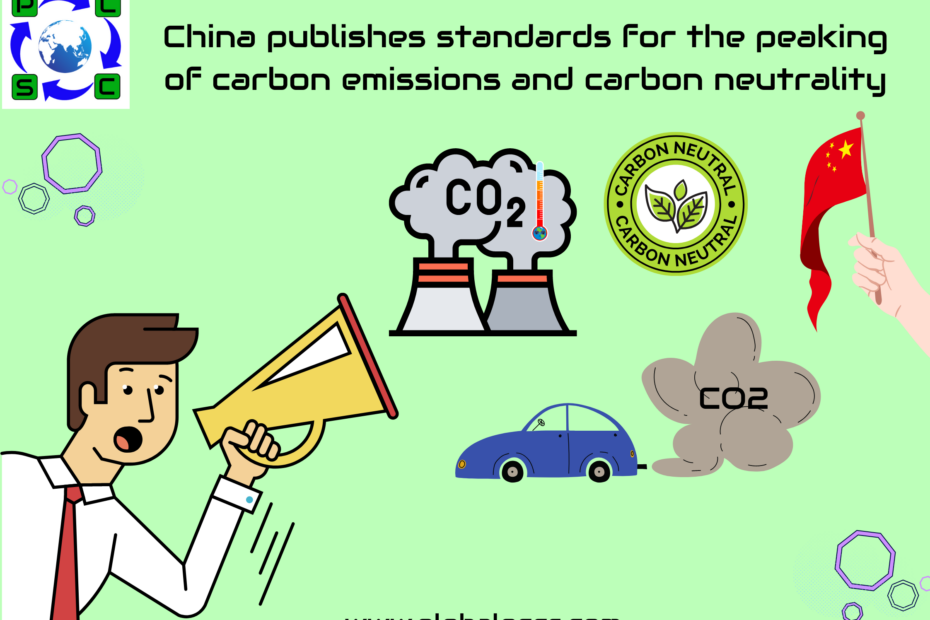
On April 24,2023, China’s Standardization Administration nine other government departments and People’s
Bank jointly published guidelines on the development of standards for carbon emissions peaking and
carbon neutrality.
By 2025, the guidelines hope to have 1000 new and updated national and industry standards.
Important areas for developing standards include:
● Green product evaluation,
● Energy quotas for manufacturing,
● Hydrogen stations and their main technologies/equipment,
● Fuel cells and other technologies for hydrogen energy,
● Recycling of plastic, traction batteries and other materials, and
● Carbon capture, utilization, and storage (CCUS).
Main targets: –
● By 2025, create and update 1000 industry and national standards.
● Significantly improve the conformity to international standards.
● Set up guidelines for measuring and calculating carbon emissions across all major sectors.
● Establish progressively stricter energy efficiency and consumption criteria for important sectors of the
economy and critical goods.
Key fields for standards development: –
● Carbon emissions monitoring, calculation, and inspection: – The measurement and reporting of
carbon emissions by businesses, as well as the accuracy of their data in important industries like
energy, chemical production, equipment, IT, and transportation.
● Low-carbon management and evaluation: – Appraisal of green products, data, and figures
pertaining to the green and low-carbon industry.
● Energy conservation: – Stricter mandatory energy-related standards for important products and
equipment, such as home appliances, industrial equipment, lighting products, data centres, new
energy/renewable energy equipment, and machinery manufacturing equipment, as well as energy
quotas in key industries, such as chemicals, non-ferrous metals, light industry, and machinery.
● Non-fossil energy: – Monitoring and evaluation of hydrogen energy technologies, including fuel cells,
high-efficiency solar cells, hydrogen stations and their primary technologies/equipment, and high-
efficiency solar cells.
● Recycling: – Recycling of plastic, traction batteries and other materials, as well as remanufacturing of
automotive parts, engines, tools, etc.
● CCUS: – Basic standards for CCUS, such as standards for terminology and evaluation
● Carbon trading: – Carbon emission allowances, as well as coordination, transactions, offsetting, etc.
in the carbon market








 Authorised IMDS & CDX Training & Consulting partner for
Authorised IMDS & CDX Training & Consulting partner for






